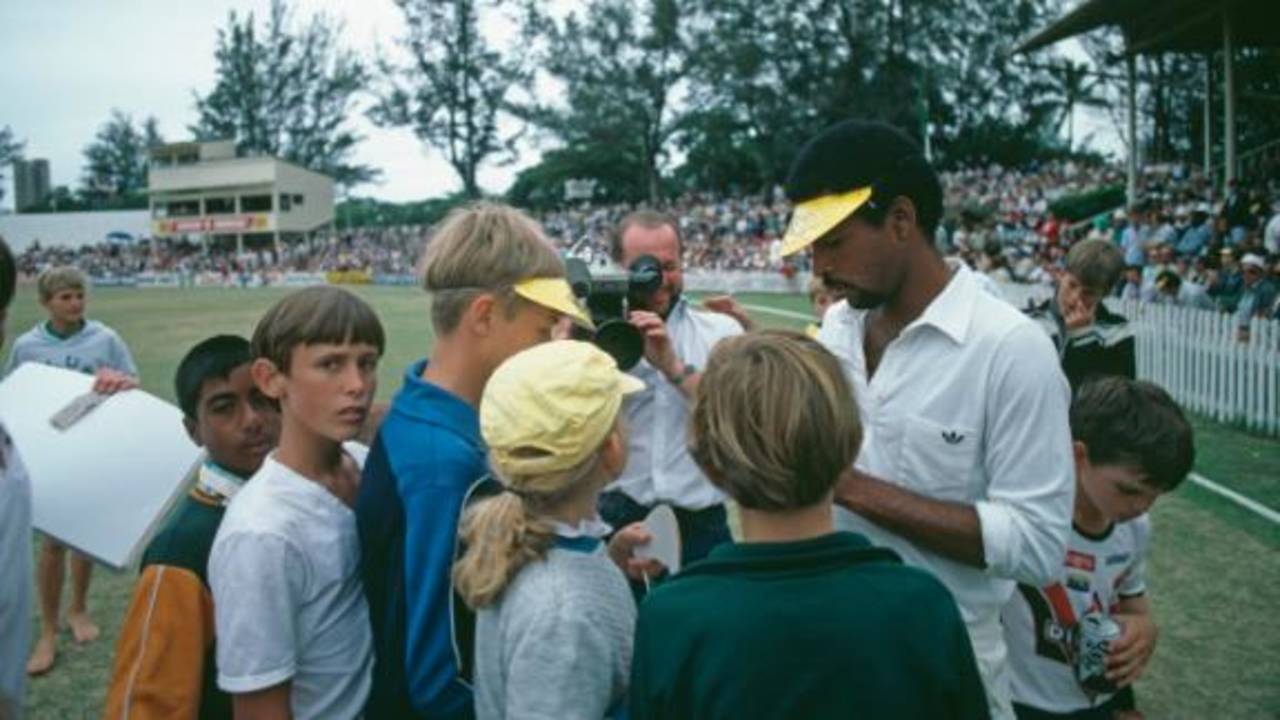'International cricket, we didn't know much about it' - Cullinan
Daryll Cullinan has admitted to having contemplated migrating to New Zealand or Australia to play international cricket as a youngster growing up in apartheid South Africa
ESPNcricinfo staff
18-Aug-2016
Daryll Cullinan, the former South Africa batsman, has admitted to having contemplated migrating to New Zealand or Australia to play international cricket as a youngster growing up in apartheid South Africa. Speaking on the seventh episode of ESPNcricinfo Talking Cricket, to be aired on Friday on Sony ESPN, Cullinan said his ambition then was limited to playing county cricket because of scant exposure to the international game.
"In terms of where we were going - not knowing that we'd ever get back into international cricket - it was not something that you believed was going to happen," Cullinan said. "That's just our lot, and if you wanted to play international cricket, you would look elsewhere, England or New Zealand, Australia, which I seriously considered, and I had the opportunity to go to New Zealand and go to Australia.
"[The] primary goal was to do well at first-class cricket and it was more the ambition of playing county cricket because that could offer you a living, and growing up, I really enjoyed squash more, but my father said, 'No, no, you won't make a living out of playing squash, stick to your cricket.' But we always had the intention to go on and study. So, cricket became the means to get to university. It was secondary in your life, but international cricket, no, [we] didn't know much about it.
The insular nature of South African politics meant his only window to international cricket was through magazines, Cullinan said: "It's not like a kid growing up today, he is growing up with the international cricket. He knows who the superstars are and it's a different world today.
"That was the time [where there was] knowing a bit about cricket and reading up on it, and cricket magazines which we got locally. Our schooling was one of that where the history of the past at that time was what we knew [of] the nation's government - black people lived there, white people lived here, and you went to your own schools. There was no integration and we were cut off. Television only arrived, I think, in [19]76, '77, '78, [and even] that was controlled."
Recalling the influence of players from the pre-isolation era, like Graeme Pollock, Barry Richards and Mike Procter, Cullinan said Pollock was the "icon" everyone wanted to emulate. "It's early '70s, we were still young kids, so we knew of them," he said. "Graeme Pollock was the icon. Barry had left. He played most of his cricket [in] Australia and England, which Graeme never did. So he was the player that everyone looked up to, and wanted to be. He was a true star."
Cullinan said the rebel tours in the '80s created enormous excitement, given the shortage of cricket in the country. He admitted, however, there were security concerns surrounding the arrival of black cricketers from the West Indies. "We thought, 'hang on, there's going to be bombs going to go off here'," he said. "These guys are now going to travel around the country, where are they going to stay? So they actually became honorary whites and they were so loved, but all these sort of things, we thought, well, you know, this was like guys arriving from out of space. And I'm not exaggerating. We were still hungry for cricket. I think that was the huge excitement."
Cullinan said there wasn't much awareness about the resistance to such tours at that time, as opposed to the fiery agitation that marked the arrival of the Mike Gatting-led English rebel side in 1990. "It [the opposition to rebel tours] wasn't spoken about, certainly not on television, in the media, because it was state controlled, it was a shutdown," he said.
Watch ESPNcricinfo Talking Cricket at 9.30pm IST on Fridays, and the repeat at 12pm on Sundays, on SONY ESPN
